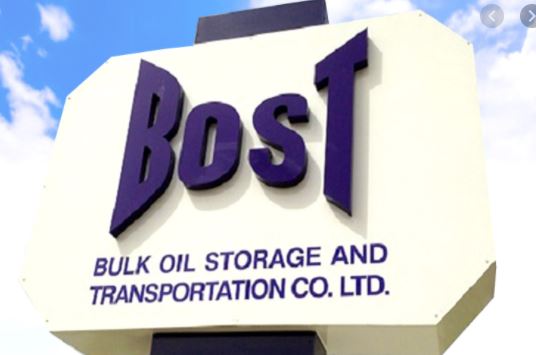- 8 drivers on the ran
- Says fuel safety is assured
Another truck carrying adulterated petroleum product has been intercepted by the Bulk Oil Storage and Transportation Company Limited (BOST) at its Kumasi depot, after eight others were also detected earlier.
The adulterated product was detected during pre-discharge testing, BOST said in a statement, adding that further tests revealed that eight more trucks had their contents adulterated, bringing the total number of trucks with adulterated contents to nine.
“During the pre-discharge testing of product aboard a Bulk Road Vehicles (BRVs), it was discovered through the basic test that the chemical composition of the product at the destination differed from what was loaded on the truck. BOST made a call for confirmation testing which proved that the result of the basic test was correct: the product aboard the truck was adulterated,” the statement read.
As a standard practice, it said products are tested to confirm their chemical composition before loading into trucks. Upon arrival at their destination, same product testing is carried to ensure what was loaded on to the truck is what has been transported before discharge is permitted.
Despite the incident, BOST assured the public that, with the current robust standard operating procedures, “no adulterated product will find its way into our tanks much less get to the market.”
The company further noted that the reported incident has not affected its operations in any way and that fuel safety and security is assured.
Action
The statement said the truck and its content are being held at a safe place whilst investigations continue and the driver of the truck is in custody, helping the investigative agencies to get to the bottom of the matter. However, the eight other drivers have are on the run.
“The drivers of eight other vehicles are nowhere to be found as we speak but their respective trucks are being held pending the conclusion of the investigations,” the statement said.
Transportation of products
BOST depends on three modes of transport for transferring products from its primary depot at Kpone in Tema across its other depots: Kumasi, Buipe, Akosombo and Bolgatanga.
These include through bulk road vehicles popularly called tankers; river barges on the Volta Lake in partnership with Volta Lake Transport Corporation; and pipelines between Tema and Akosombo, Buipe and Bolgatanga and from Tema Oil Refinery to the Accra Plains Depot.
The reported incident relates to the Bulk Road Vehicular mode of transport.
“We are fortunate that these products aboard 9 bulk road vehicles did not find their way into storage tanks, and subsequently on the market. Thanks to the vigilance of the technicians and the handlers of the Kumasi oil terminal, consumers would have paid dearly for using such fuels at a later date,” says Executive Director of Institute for Energy Security, Nana Amoasi II.
The dangers associated with using adulterated fuels like gasoline and gasoil, he added, are huge and that fuelling a car with a dirty product may cause engine malfunctioning and component failures and may also compromise the safety of motorists and other users.
“Aside the harm to users, adulterated or dirty fuels increases emissions of carbon monoxide, nitrogen oxides, and particulate matters that pollute the air,” he explained.
NPA needs to act
This current incident, according to Nana Amoasi II, should serve as a wake-up call to the sector’s regulator, National Petroleum Authority (NPA), to fish out the culprits, while serving as a path to intensify its monitoring activities in a bid to protect the consumer.
“For so long a time, adulteration of fuels has been blamed on tanker/BRV drivers, but checks by authorities may reveal that fuel adulteration is also perpetuated by branded oil marketing companies (OMCs) managed by unscrupulous persons. This leaves consumers in dangerous situations because of trust in particular brands.
While we wait for the police to investigate further, BOST and the NPA may wish to put out for instance the names of the transporters in question, to send a strong message to other transporters who may allow their trucks to be used for such nefarious acts,” he advocated.










